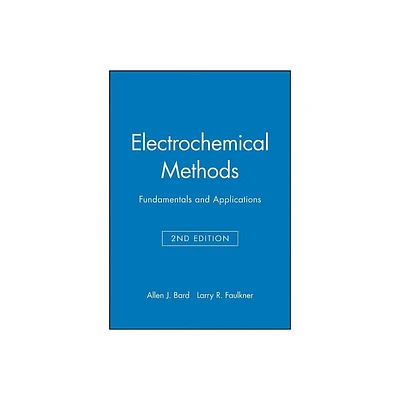Home
Electrochemical Methods: Fundamentals and Applications
Loading Inventory...
Barnes and Noble
Electrochemical Methods: Fundamentals and Applications
Current price: $174.75


Barnes and Noble
Electrochemical Methods: Fundamentals and Applications
Current price: $174.75
Loading Inventory...
Size: OS
*Product Information may vary - to confirm product availability, pricing, and additional information please contact Barnes and Noble
The long-awaited revision of a classic! This defining textbook on electrochemistry takes the reader from the most basic chemical and physical principles, through fundamentals of thermodynamics, kinetics, and mass transfer, to a thorough treatment of all important experimental methods. It offers comprehensive coverage of all important topics in the field, and is renowned for its accuracy and clear presentation.The 3rd edition of this bestselling textbook has been extensively revised to reflect developments in the field over the past two decades. Updates and new features include: • Three new chapters on Steady-State Voltammetry at Small Electrodes, Inner-Sphere Electrode Reactions and Electrocatalysis, and Single-Particle and Single-Molecule Measurements.• All existing chapters have been fully updated in the light of developments since the 2nd edition.• The introductory chapter has been revised significantly to make it more effective for technical readers coming into electrochemistry from outside the field.• Includes more extensive coverage of simulation methods in the main text and end of chapter exercises.• More "how to" discussions have been added, covering important practical procedures.Exercises are included at the end of each chapter. Devised as teaching tools, these exercises often extend concepts introduced in the text or show how experimental data are reduced to fundamental results.

















